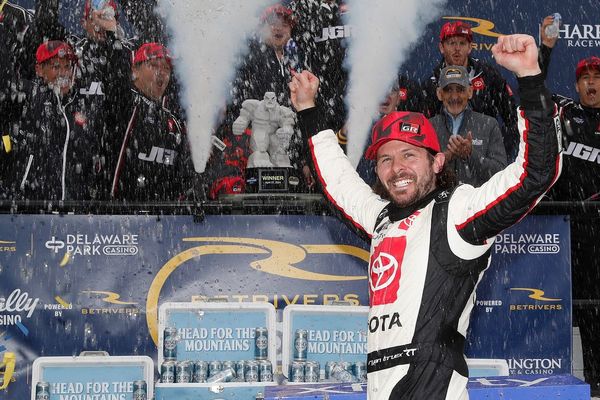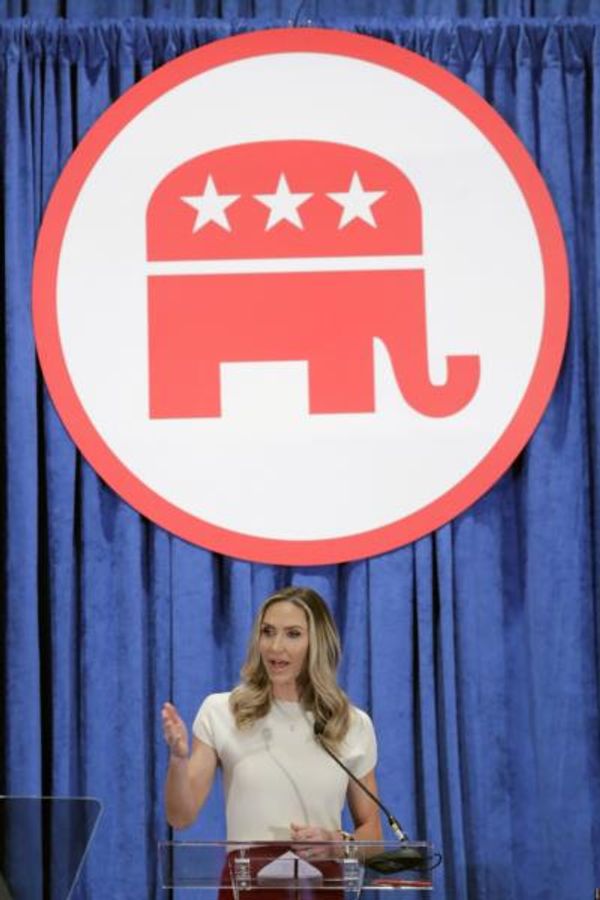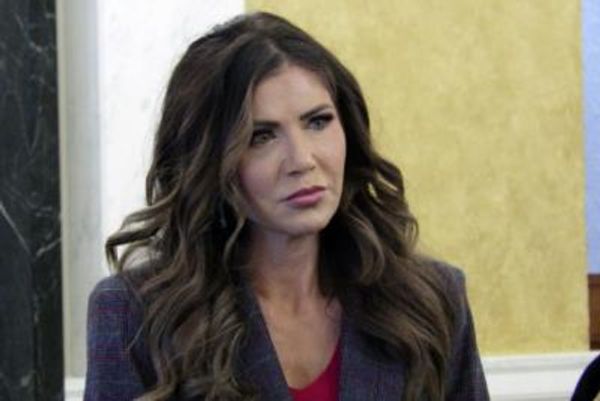
Aboriginal and Torres Strait Islander readers please note that this article mentions deceased persons.
South Australian Liberal Senator Kerrynne Liddle was the only politician present at yesterday’s launch of a landmark First Nations report calling for national reform of the education system.
Addressing more than 50 First Nations educators at Utyerre Apanpe (oo-cherra a-parn-pa) — an annual First Nations-only education conference just east of Mparntwe (Alice Springs) — the Arrernte woman and senator said she credits her position today to the symbiotic classroom-Country education she received growing up.
“People ask me in Parliament, ‘Why are you and your family so successful?’ This is the answer, the things you’ve been talking about today,” Liddle said.
Day three (of four) of Utyerre Apanpe was marked by the release of “The MK Turner Report”. Named after the late Arrernte Elder Dr MK Turner OAM, it puts to paper a unanimous call from First Nations educators to establish a standalone First Nations system of education. In short, it wants the government to recognise, resource and roll out a model that’s less classroom and more language, culture and Country.
Jane Vadiveloo, CEO of First Nations education organisation Children’s Ground (which organised the conference and published the report), said that Australia risks losing its greatest teachers and most important Aboriginal voices if government does not start listening and acting on the advice of Elders.
“As government looks for solutions, we know it’s been here waiting,” she said. “We have incredible Elders in this room. But they’re never going to go to Canberra, they’re never going to be heard.”
A hard copy of the nearly 100-page policy document will be delivered to Canberra later this year by a small number of the much larger cohort of 60-plus First Nations educators who contributed to the report. In the interim, they want it read and acknowledged, but based on many years of stagnancy in the industry and political uptake of the report, Vadiveloo is not optimistic: “If Gonski can’t get a response from government, how on earth will these guys?”
Children’s Ground told Crikey that it extended handwritten invites, email follow-ups and courtesy phone calls (the initial envelope edition went out in February-March) to Minister for Indigenous Affairs Linda Burney, Assistant Minister for Indigenous Affairs and Indigenous Health Senator Malarndirri McCarthy, Member for Lingiari Marion Scrymgour, NT Attorney-General Chansey Paech, and First Nations staff in the office of NT Chief Minister Natasha Fyles.
A spokesperson for Burney and McCarthy told Crikey that both the minister and assistant minister had met with Children’s Ground representatives on recent visits to Alice Springs, and although they were unable to make it to Utyerre Apanpe, the government remained committed to working with local communities and the central Australian education sector to improve outcomes for Indigenous children and young people. They would not comment on the report’s core recommendation for a standalone First Nations system of education.
Scrymgour’s office said she was currently in the Top End out bush and therefore unable to attend.
Minister for Education Jason Clare was not invited as the event was only for First Nations people, but Children’s Ground said it’d made repeated (unsuccessful) requests for meetings with him over the past six months. He has been sent a copy of the report.
The minister did not respond to Crikey’s request for comment.
Following presentations from First Nations educators on Wednesday, Liddle spoke frankly about herself, her family and their shared fundamental belief that First Nations knowledge — “our knowledge” — must stand alongside Western knowledge.
She talked of family members working as qualified teachers in remote communities and having to fight with the system all day to teach kids the way they know they should be taught — the same way their grandmothers taught them.
“I remember when I went and visited them, I went to one of the schools and I said to the teacher there, the principal, why do you have an art teacher from somewhere else in here? Why aren’t you using those old ladies?” Liddle said, adding that without Aboriginal Elder knowledge and language, a kid might learn how to make a pot, but they don’t learn why, where it comes from and what it’s used for.
“It’s the expansion of comprehension that’s really critical,” she said.
Liddle spent four hours with First Nations educators who made clear that they wanted the senator to take the report and its key recommendations back to the nation’s capital.
The senator told Crikey that she would “of course” take the report back to Canberra to “help open those doors and those conversations” in her own party and across government, although she reiterated that there’s still a way to go before these concepts are properly understood and appreciated by the mainstream.
“I think sometimes people forget that intelligence and education are not necessarily the same thing,” Liddle said.
“It’s really important, particularly with traditional knowledge, to recognise that just because you have a degree in ecology, it doesn’t mean you’re any cleverer or smarter than the Aboriginal person that’s been living amongst ecology their entire life and has learnt from the greatest teachers.”







